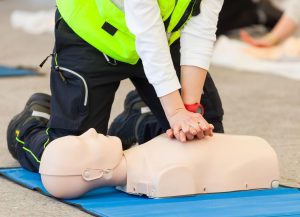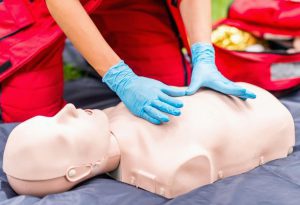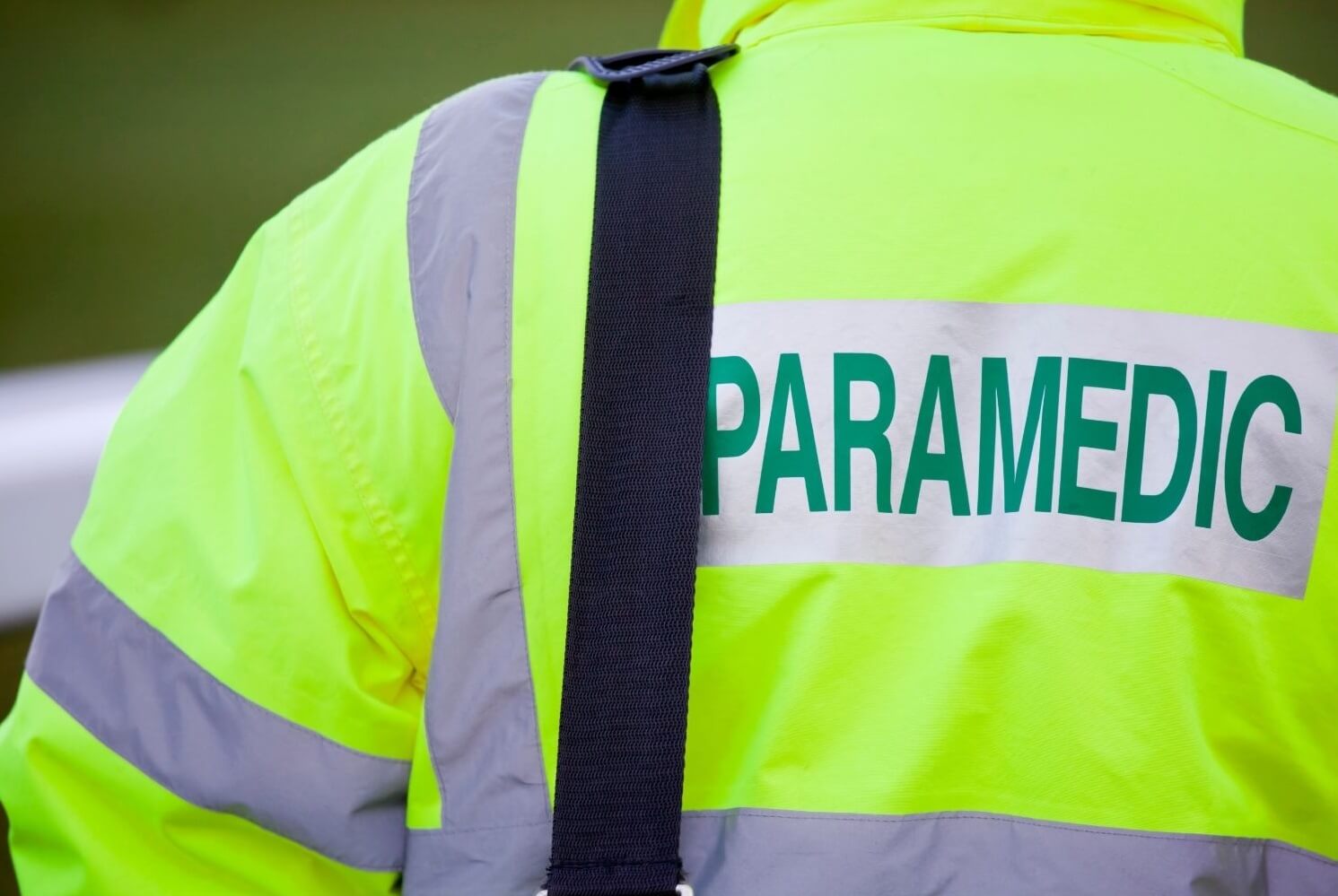To become a paramedic requires formal training, registration, and experience. A paramedic is a medical professional trained to provide crisis medical treatment and care to those in critical states. It is usually the first thing paramedics do at an emergency call to deliver lifesaving care and ensure the patient is properly cared for when they arrive at the hospital. If you’re a people person, can handle a lot of pressure, and need a job that will directly impact someone’s life, being a paramedic might be for you. Find out how to get a paramedic’s certificate in the UK, the skills and qualifications you require, and how to get ahead in this powerful position.
What’s a Paramedic Doing?
To become a paramedic, you provide critical care in an emergency and advanced medical attention to patients who suffer from serious diseases or injuries. Their responsibilities include:
- Treating Patients promptly: To become a paramedic, you are in charge of diagnosing and treating a patient when an emergency arises, figuring out the injury or disease, and treating it. That could mean giving CPR, halting bleeding, bracing fractures, medicating, and breathing.
- Transport of Patients Safely to Hospitals/Other Care Facilities: To become a paramedic, you transport patients safely to the hospital or other care facilities as they are medically supported throughout the event. They assist in stabilising patients and keeping them healthy during transit.
- Operating and Repairing Medical Equipment: To become a paramedic, you use medical equipment that requires special skills, such as defibrillators, respirators, and heart monitors. They must know how to operate this equipment and keep it clean, well-maintained, and ready for action.
- Contact with Physicians and Emergency Services: To become a paramedic, you interact with other medical providers, doctors, nurses, and hospital personnel to provide appropriate and prompt care. They can also interact with emergency services like police or fire to help coordinate response.
- Writing and Reporting Patient Data: There are no paramedics without proper documentation. They have to document the patient information, symptoms, medication administered, and emergency. The data is provided to hospital personnel for ongoing treatment and care.
- Bereavement Support to Patients and Families: Beyond physical care, paramedics also provide support and comfort to patients and their loved ones during emergencies. Sensitivity and staying calm when pressured are critical to whole health care.

Average Paramedic Salary in the UK
A paramedic’s salary in the UK will vary based on experience, geographical area, and employer. Newly qualified paramedics average £25,000 to £30,000 a year in positions within Band 5 of the NHS Agenda for Change salary.
Depending on experience and further training, paramedics can rise to Band 6, with an average salary between £31,000 and £38,000. Specialist paramedics, advanced paramedics, or those with senior management (e.g. paramedic team leader/manager) can make £40,000 or more annually, usually in cities or specialist response teams.
A Paramedic’s Must-Haves Skills.
You will need a combination of medical training, field experience, and other unique traits that allow you to perform in extreme conditions. Key skills include:
- Great Medical Skills and Medical Knowledge: To become a paramedic, you must be well-versed in emergency medicine, anatomy, physiology, and pharmacology. Their ability to perform clinical evaluations, give first aid, and provide advanced care can be the difference between life and death in a crisis.
- Peace of Mind and Quick Action: Emergencies are chaotic, and paramedics must stay calm, think clearly, and make swift, well-informed decisions regarding patient care. It is essential to work on deadlines and react rapidly to new scenarios.
- Strong Communication and People Skills: To become a paramedic, you must communicate well with patients, their families, coworkers, and emergency service providers. They need to convey specialised medical knowledge and comfort suffering.
- Fitness and endurance: To become a paramedic, you must be physically healthy and able to handle all the stresses associated with the job, such as carrying patients, transferring patients, lifting medical equipment, and working extended hours under harsh conditions.
- Empathy and Compassion: Emotional support is an important element of paramedic duties. Emotion, kindness, and affection ensure that paramedics can provide support and comfort to patients and families during times of crisis.
- Problem Solving and Critical Thinking: Every emergency is different, and paramedics need to be problem-solvers to analyse situations quickly, prioritise care, and solve tough health problems in the field.
- Consistency and Accurate Recording: To become a paramedic, you must document the patient, treatments administered, and the emergency situation. Attention to detail is useful for clinical treatment and legal recordkeeping.

Steps to Become a Paramedic in the UK
Becoming a paramedic requires formal training, registration, and experience. Below are the key steps to becoming a qualified paramedic in the UK:
- Complete a Paramedic Science Degree: The main route to becoming a paramedic in the UK is to complete a BSc (Hons) degree in Paramedic Science or Paramedic Practice from a university approved by the Health and Care Professions Council (HCPC). This course typically takes three years of full-time study and includes both theoretical learning and practical experience.
The curriculum covers topics like anatomy and physiology, emergency medicine, trauma care, pharmacology, and pre-hospital care. The course also includes clinical placements in ambulance services, hospitals, and community healthcare settings to gain hands-on experience in real-world scenarios. - Register with the Health and Care Professions Council (HCPC): After completing your paramedic science degree, you must register with the HCPC to legally practice as a paramedic in the UK. Registration ensures that you meet the professional standards required for the role and are qualified to provide emergency care.
To register, you need to:- Successfully complete an HCPC-approved paramedic science degree.
- Meet the standards of proficiency for paramedics, which include skills, knowledge, and ethical conduct.
- Submit an application to the HCPC, including necessary documentation and fees.
- Gain Employment with an Ambulance Service or Healthcare Provider: Once registered, you can apply for paramedic positions within NHS ambulance trusts, private ambulance services, air ambulance services, or other healthcare providers. Look for job opportunities on the NHS Jobs website, private ambulance services, or healthcare recruitment agencies.
Entry-level paramedic positions typically start within NHS ambulance services, where you will work as part of a team responding to emergency calls, providing pre-hospital care, and transporting patients to medical facilities. - Continue Professional Development and Training: Paramedics are required to engage in Continuing Professional Development (CPD) to maintain their skills, stay updated on medical advancements, and meet HCPC requirements for professional registration. This can include attending training courses, workshops, conferences, and seminars, as well as participating in hands-on clinical experience and study.
CPD allows you to learn about new techniques, improve your skills, and ensure you are providing the best possible care to patients. - Pursue Specialist Training and Advanced Roles (Optional): As you gain experience, you may choose to specialize in a particular area of paramedicine or advance to higher-level roles. Potential pathways include:
- Specialist Paramedic: Specialist paramedics receive additional training in areas like critical care, urgent care, or primary care, allowing them to provide advanced treatments and support.
- Advanced Paramedic: Advanced paramedics have a greater scope of practice and can provide more complex treatments, such as administering advanced medications and performing advanced airway management.
- Paramedic Team Leader or Manager: Experienced paramedics can progress to leadership roles, managing teams, coordinating emergency responses, and overseeing the training and development of staff.
- Additional training and qualifications: A Master’s in Advanced Paramedic Practice or postgraduate certificates, can support career advancement and specialization.

Tips for Aspiring Paramedics
- Develop Strong First Aid and Basic Life Support Skills Early: If you are considering a career as a paramedic, start by gaining experience in first aid and basic life support. Volunteering with organizations like St John Ambulance, the British Red Cross, or local community emergency services can provide valuable experience and exposure to emergency care.
- Improve Your Physical Fitness and Stamina: Physical fitness is essential for a paramedic’s role. Engage in regular exercise, strength training, and endurance activities to build the strength, stamina, and agility needed for lifting patients, carrying equipment, and responding to emergencies quickly.
- Stay Calm and Practice Decision-Making in High-Stress Situations: Paramedics often work in fast-paced and stressful environments. Practice staying calm, making quick decisions, and managing your stress. Simulated training exercises, role-playing scenarios, or taking on leadership roles in emergency situations can help you develop these skills.
- Enhance Your Communication and Interpersonal Skills: Strong communication skills are vital for paramedics to build rapport with patients, explain medical procedures, and collaborate with healthcare teams. Practice active listening, clear verbal communication, and empathy to connect with patients and their families effectively.
- Keep Up with Medical Advancements and Techniques: The field of emergency medicine evolves rapidly, and staying updated on the latest advancements, protocols, and treatment techniques is important for paramedics to provide high-quality care. Attend training sessions, workshops, and medical conferences, and participate in CPD activities to enhance your knowledge and skills. Being proactive about learning will help you stay at the forefront of emergency care.
- Gain Experience in Healthcare or Emergency Services: Experience in healthcare or emergency services can strengthen your application and develop your understanding of patient care. Consider volunteering as a Community First Responder, joining a local ambulance service, or working in a related healthcare role such as a healthcare assistant or nursing assistant. These experiences can provide insight into patient care and emergency response.
Frequently Asked Questions
Why You Need to Become a Paramedic?
Paramedicine is an excellent career choice if you love to help others, work in fast-paced environments and have a passion for helping people. Paramedics provide medical care at the front lines, and they help save lives by attending to patients in emergencies. It’s an occupation that brings variety, meaning, and the promise of ongoing development and learning.
Should You Be a Paramedic?
If you are empathetic, healthy, want to work in a team, and are comfortable working under stress, you might be interested in being a paramedic. ‘It’s a demanding but super rewarding career path if you love healthcare and emergency management. The work requires dedication, stamina, quick decision-making and an ability to care under pressure.
What Are The Job Opportunities For Paramedics in the UK?
Freshly qualified paramedics begin their career earning £25,000 to £30,000 a year within NHS Band 5, with experience and extra qualifications; at Band 6, this increases to £31,000 to £38,000 or more senior positions, specialist paramedics and advanced paramedics making £40,000 or more, with extra pay for unsocial hours or overtime contributing further to this figure.
How Do You Qualify as a Paramedic?
The main entry requirement for becoming a paramedic is a BSc (Hons) in Paramedic Science or Paramedic Practice from an accredited university recognised by the HCPC. This programme combines coursework and clinical placements and trains you to tackle the real-world requirements of the job. After your degree, you must register with the HCPC to work as a paramedic in the UK.
Are You Going To Be a Paramedic Until You Have Experience?
No specific experience is required before pursuing a paramedic science degree, but experience in first aid, medical volunteer work or emergency services are all helpful. This experience gives you hands-on exposure to ER and helps you stand out in your paramedic application.
What is the Job Market for Paramedics?
The UK demand for paramedics is strong because emergency care requires them. Job opportunities exist in the NHS ambulance service, private health care, air ambulances, and emergency services. Career progression in this role is available as a specialist, advanced, or manager position within ambulance services.
So, What Are the Career Advancements for Paramedics?
Paramedics have a lot of career development possibilities. The higher you climb the ladder, the more you can become a Specialist Paramedic (critical care, mental health or primary care), Advanced Paramedic, Paramedic Team Leader or Clinical Manager, depending on your experience and qualifications. You can also reorient to education, training, research, clinical governance, or general healthcare management.
So What’s the Exit Strategy and Career Path Away From Paramedic?
Paramedic skills—emergency medicine, patient assessment, problem-solving, and collaboration—can be applied to many healthcare jobs. Paramedics could become clinical educators, emergency plan-makers, healthcare managers, or even pursue further training as nurses, doctors, or physician assistants. Being a paramedic can lay a solid foundation for various healthcare and emergency service careers.


